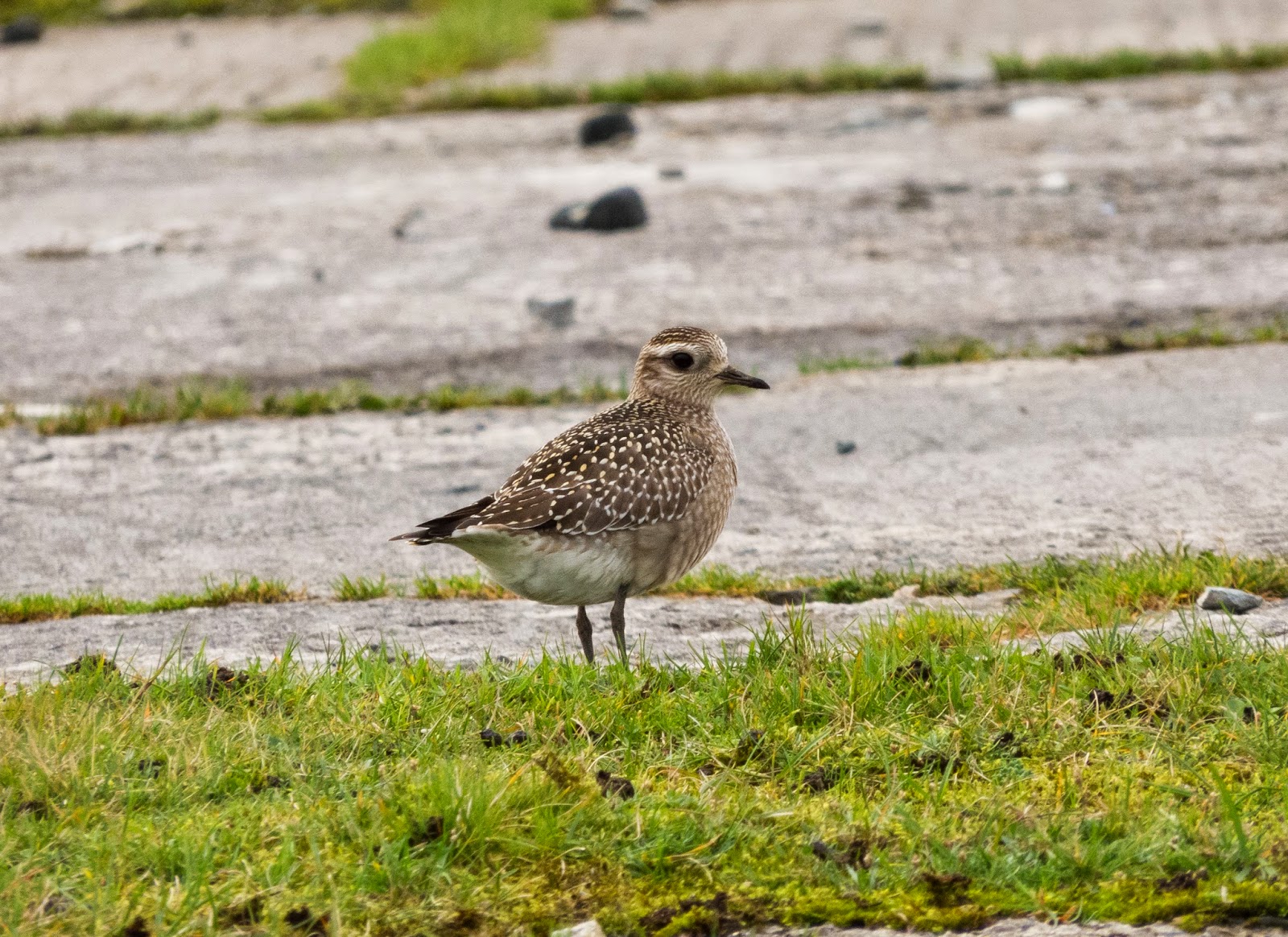After heading to Davidstow
Airfield in the morning to track down the American Golden Plover that had taken
up residence there (it was clearly in no hurry to move on from its new found
home, having been present for over a week), it was rather frustrating that we
couldn’t relocate it next to its usual haunt of the small pool next to the
windsock. After driving around for about an hour checking the surrounding
grassy fields, with no sign of the bird anywhere, we were just about to give up
(another lifer seemingly slipping out of our grasp) when Alex made an
absolutely cracking find, spotting the bird right next to the car hidden in the
centre of the runway! It had evidently proven hard to spot for everyone, as 4
other cars had driven past it already whilst we were there, the bird blending
perfectly in to the concrete surroundings and completely undeterred by the
trail of cars moving slowly down the runway in search of it. We quickly alerted
the other cars looking, and stopped to admire this beautiful looking American
wader.
Though rather bleak looking
and containing few pools, Davidstow Airfield has surprisingly attracted its
fair share of American waders over the past 5 years, with White-rumped, Baird’s
and Semipalmated Sandpipers, as well as several Buff-breasted Sandpipers all
recorded amongst the abandoned and eerie runways.
We sat and watched the AGP for
a good while, the bird positioned right outside my passenger door allowing for
some excellent photo opportunities and showing fantastically well at such a
close range. This allowed us to really take note of the golden and silver
speckles on the plumage and admire it as it happily foraged for worms in a
small patch of grass.
As a juvenile, it was
distinguishable from our resident Golden Plovers by the prominent white
supercillium and overall greyer and duller colouration – illustrated perfectly
at such a close proximity.
After half an hour or so, the
cries went up, and it had indeed taken off from the marsh and was gliding
smoothly across the reeds. Whilst distant, the orange colouration could just be
made out (my favourite plumage type for Pallid Harriers) and we watched the
bird for around 5 minutes before it was lost to view in the marsh again.
Deciding that the other path offered much closer views, we headed off that way,
and whilst sat scanning our surroundings, amazingly, by sheer chance, both me
and Alex had our scopes independently on the exact patch of reeds to coincide
with the moment the bird took off again – providing close prolonged views and allowing
us to see the distinctive features a lot better.
 |
| The saltmarsh the harrier was favouring. |
Pallid Harriers have much
slimmer and narrower wings than Hen Harriers, and the juveniles can be told
apart by the unmarked bare orange undersides lacking any of the streaking that
is usually found on Hen Harriers. The distinct pale collar on the neck and
solid dark boa pattern also separates them from the extremely similar Montagu’s
Harrier, and this coupled with the contrast between the solid dark secondaries
and pale primaries are the best ways to tell the two species apart.
After deciding to head back
down south that evening to Hampshire for the Siberian Stonechat that was
showing at Titchfield Haven, we made the 2 and a half hour journey to our next
stopover in Southampton to rest up and enjoy a delicious meal of crispy lamb
and chilli fried chicken (some of the best food I’ve had out in ages so most
definitely worth a mention) and the prefect remedy for
getting stuck in the tedious and unexplainable hour long delay we encountered
near Wiltshire!







No comments:
Post a Comment